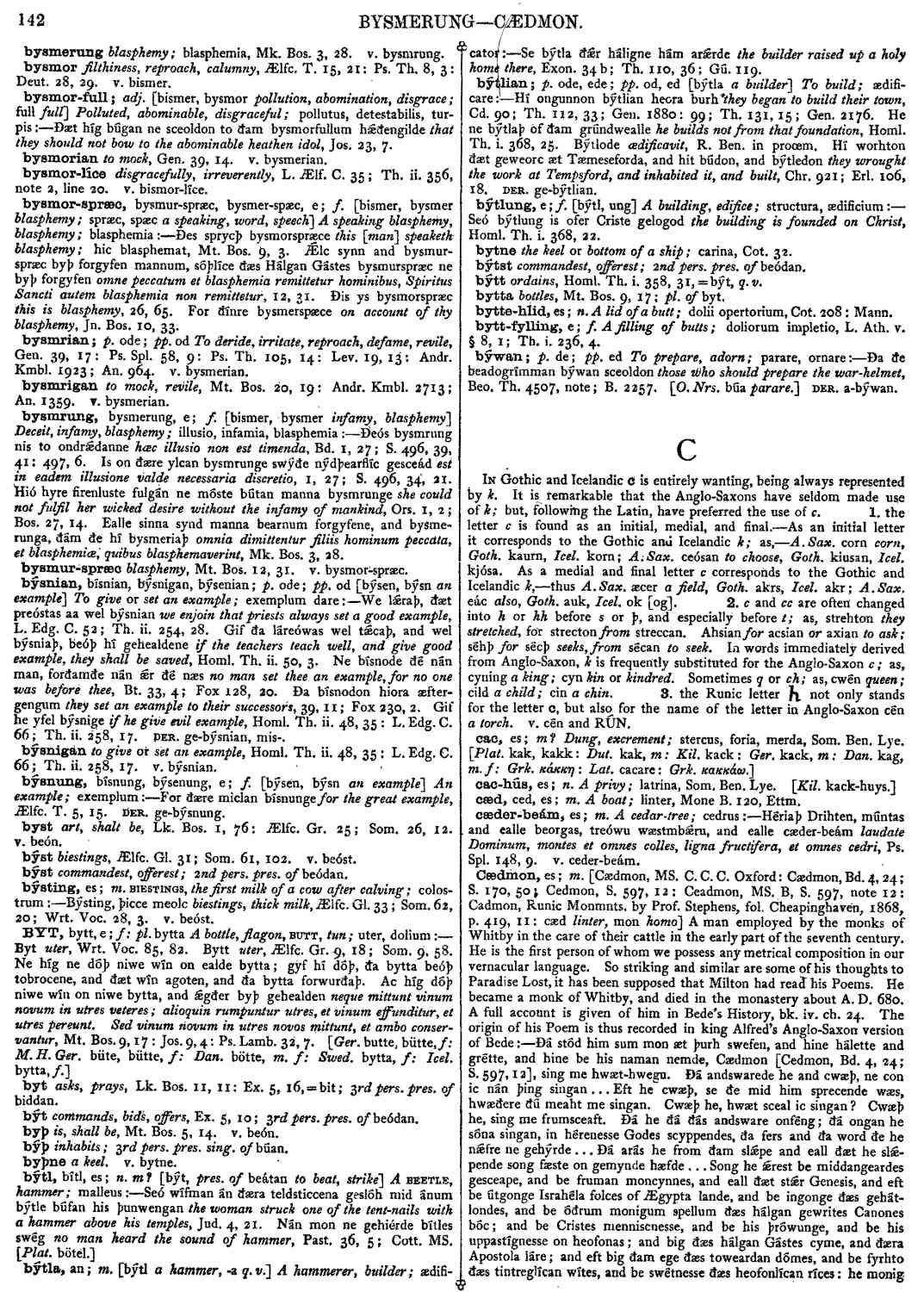Cædmon
- noun [ masculine ]
-
Ðá stód him sum mon æt þurh swefen, and hine hálette and grétte, and hine be his naman nemde, Cædmon [Cedmon,
- Bd. 4, 24; S. 597, 12
Cædmon, sing me something. Then he answered and said, I cannot sing anything. . . Again, he who was speaking with him said, Yet thou must sing to me. Said he, What shall I sing? Said he, Sing me the origin of things. When he received this answer, then he began forthwith to sing, in praise of God the Creator, the verses and the words which he had never heard . . . Then he arose from sleep, and had fast in mind all that he sleeping had sung. . . He first sang of earth's creation, and of the origin of mankind, and all the history of Genesis, and then of the departure of the people of Israel from the Egyptians' land, and of the entrance of the land of promise, and of many other histories of the canonical books of Holy Writ; and of Christ's incarnation, and of his passion, and of his ascension into heaven; and of the coming of the Holy Ghost, and the doctrine of the Apostles; and also of the terror of the doom to come, and the fear of hell-torment, and the sweetness of the heavenly kingdom: he made many poems,
- Bd. 4, 24; S. 597, 11-18, 25, 26-598, 9-17.
- F. S. A. in large 8vo. 1832,
Bosworth, Joseph. “Cædmon.” In An Anglo-Saxon Dictionary Online, edited by Thomas Northcote Toller, Christ Sean, and Ondřej Tichy. Prague: Faculty of Arts, Charles University, 2014. https://bosworthtoller.com/5730.
Checked: 0